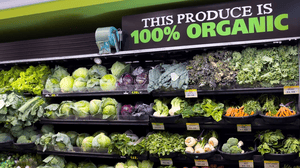Retailers Split on Interchange Lawsuit
ALEXANDRIA, Va. — Saying that the proposed $7.25 billion settlement of a civil class-action antitrust lawsuit against credit-card issuers does not go far enough in addressing retailer concerns, the National Association of Convenience stores said it has rejected the settlement offer.
ALEXANDRIA, Va. — Saying that the proposed $7.25 billion settlement of a civil class-action antitrust lawsuit against credit-card issuers does not go far enough in addressing retailer concerns, the National Association of Convenience stores said it has rejected the settlement offer.
NACS is the first of the class-action plaintiffs to reject settlement of the suit, which was filed in 2005 against Visa, MasterCard and several card-issuing banks, alleging that they conspired to fix the interchange fees they levy on credit-card transactions.
“The settlement does not address the transparency we have been fighting for more than a decade,” Jeff Lenard, vice president of industry advocacy for NACS, told SN. If all the plaintiffs that are part of the class reject the settlement, it would go to trial as scheduled in September, he explained.
However, one of the individual plaintiffs in the suit that was not part of the class, Cincinnati-based Kroger Co., said the company felt it could benefit as a result of provisions in the agreement allowing retailers to incentivize more efficient methods of payment, helping to lower its overall costs.
“We think the settlement represents the best opportunity to resolve the litigation and to begin exercising a new ability to reduce costs for our customers,” Keith Daley, a Kroger spokesman, told SN. “It’s a good settlement, if not a perfect settlement.”
He described the ability to discount for certain payment methods as “a hugely powerful new tool at a merchant’s disposal. For example, retailers can now consider discounting for customers who use debit cards. So through discounted pricing on certain electronic payments, we can begin to move consumers toward more efficient and lower-cost products,” Daley said. “That represents the first leverage point we have with the big credit card companies ever. That’s a fundamental shift to have a tool like that at our disposal.”
In addition to a $6.05 billion payout to retailers and an estimated $1.2 billion the form of reduced interchange fees, the card companies also agreed to new rules that allow retailers to show consumers the costs of using certain cards — but only under certain conditions that make the settlement “virtually unworkable for merchants,” NACS said.
National Grocers Association and Food Marketing Institute, both based in Arlington, Va., said they were reviewing the settlement.
About the Authors
You May Also Like






